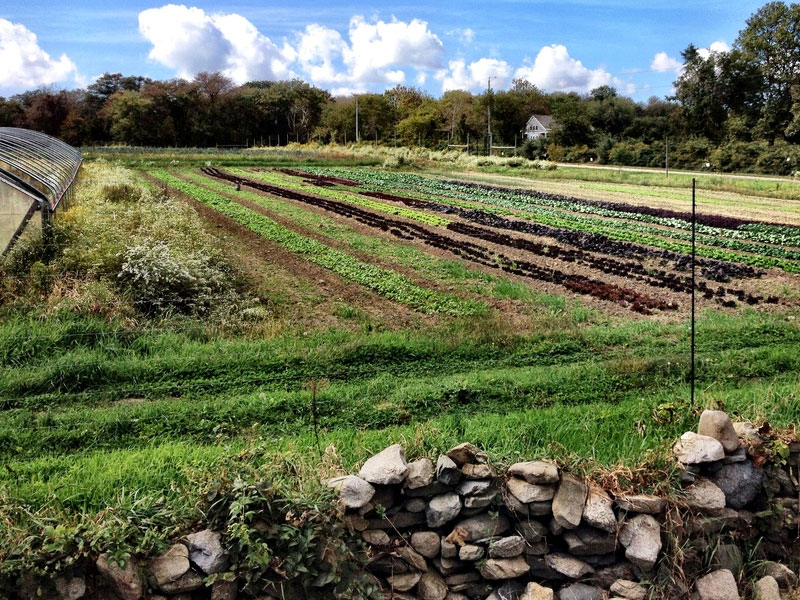by Anea Ferrario, Elena Newman, and Alex Seemar
Brown University, Engaged Scholars Program
Usually at this time of year, Wishing Stone Farm would be at a lull in yearly production as they transitioned from winter to summer crops — they would be selling the last of the root veggies from the winter, be busy planting crops for the spring and summer season, and the farm would not be open to the public until mid-June.
But in light of the COVID-19 pandemic, things look a little different this year. Wishing Stone Farm lost many of their restaurant accounts, and no longer felt comfortable going to big farmers markets, so they decided to open a weekend mini-market at their farm instead.
Usually a farmers market in Little Compton at this time of year would yield little business, but now they are quite busy selling food to customers on the weekends — as well as still trying to quickly plant new crops for the summer. They’ve also paused their participation in Farm Fresh RI’s Market mobile as they focus on providing food to the community in other ways during this time. The farmers are currently focusing on restocking and preparing for the summer season while providing their customers with fresh produce now and into the future.
Overall, sales for the farm have increased, as has interest in their CSA (Community Supported Agriculture) program, where shoppers pre-buy “shares” of the local harvest. Wishing Stone Farm is planning to grow and plant as much for the summer as they do every year, if not more.
Liz Peckham, co-owner of Wishing Stone, says they were a little concerned about the risk involved in bringing people to their farm at first. But with the mini-markets taking place outside and following social distancing guidelines, she says everyone has been very respectful and patient.
When asked to comment on the farming situation in Rhode Island Liz said she feels that many of the small farmers are actually faring better than the big farmers, because bigger farms often cater to larger institutions that are no longer able to buy as much, while smaller farms often have a more loyal, personal customer base.
Liz says that it has been very satisfying to support the community in this way, and that her faith in people has been confirmed and restored. She’s unsure about which changes will be permanent at the farm, but hopes this will be a reminder to people to slow down and appreciate the little things more.


